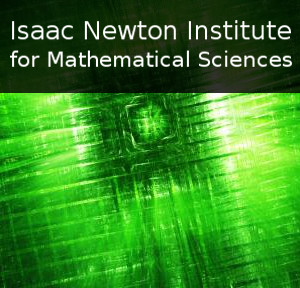Algorithms and Software for Quantum Computers

| Created: | 2018-03-16 10:00 |
|---|---|
| Institution: | Isaac Newton Institute for Mathematical Sciences |
| Editors' group: | Members of "Isaac Newton Institute for Mathematical Sciences". |
| Description: | Next generation (Quantum) computers promise to speed up some mathematical processes by orders of magnitude, but new algorithms and software will need to be developed to exploit this power. Although general-purpose quantum computers are some years away, work should start on the software now. As quantum machines operate in a completely different way to conventional computers, code development requires entirely new thinking.
In 2015 the UK government launched the 5-year UK National Quantum Technology Programme, now worth ~£400m, the largest public investment ever made in a disruptive technology. The aim is to exploit the UK’s world-class quantum science to create a profitable and sustainable business in the UK. Part of this is funding UK development of quantum processors, but their unique characteristics will need new ways of thinking to create the code necessary for practical application to industrial problems. It has been suggested that quantum computer software will create more wealth than the hardware, important though that is. Aims This workshop was a collaboration between the Knowledge Transfer Network (KTN) and the Turing Gateway to Mathematics. It aimed to initiate development of quantum computer algorithms and software by bringing together real-world problem owners (for example in drug discovery, telecoms, manufacturing and others), with mathematicians, algorithm experts, and academic quantum computer hardware experts to explain what code developers need to know to create software, without getting bogged down in the underlying physics. We aimed to do this in sufficient detail to spark immediate cooperation and collaboration. Participants included academic researchers and individuals from business and industry. Various classes of problems were discussed and a number of relevant sectors were represented - including medicine discovery, logistics, earth observation and finance. We also updated delegates on the anticipated capabilities of classical machines 5 or 10 years from now, when practical quantum processing may be available. A programme of talks and discussion highlighted and explored what code developers need to know to create software capable of delivering industrial needs and ideally gain estimates of speed-ups which could be expected. Extra consideration was given to where classical computing architectures will be in the same timeframes we expect Quantum Computing to begin to deliver. |
Media items
This collection contains 1 media item.
Media items
National Quantum Keynote
0 views
Dobson, P
Wednesday 14th March 2018 - 11:10 to 11:40
Collection: Algorithms and Software for Quantum Computers
Institution: Isaac Newton Institute for Mathematical Sciences
Created: Fri 16 Mar 2018

